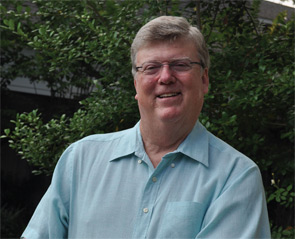
In January 2006, Craig Plumhoff of Houston was sick. “I started feeling extreme fatigue,” says Plumhoff, “and I was also having problems with my lungs. Doctors originally thought it was bronchitis and then viral pneumonia.” His doctors put him on antibiotics, but two weeks later he ended up in the intensive care unit at St. Luke’s Episcopal Hospital in Houston with critically low sodium levels.
Plumhoff could not elevate his legs off the bed and was very weak. He was told his creatine phosphokinase (CPK) count was 22,000—way above normal.
He ended up spending a month in the hospital. Rheumatologist Alan Friedman, MD, was part of the team of specialists who were consulted to help make a diagnosis. Later, Dr. Friedman told Plumhoff that he suspected early on what the problem was, but wanted to run complete tests before he went to work on treating him.
After 10 days of intense testing, the doctors confirmed Plumhoff’s diagnosis: polymyositis with associated interstitial lung disease (antisynthetase syndrome with Jo-1 antibodies).
“At that point, Dr. Friedman became the principal quarterback directing my care,” Plumhoff says. Dr. Friedman acted quickly, getting Plumhoff started on an aggressive medication therapy. “After I was released from the hospital, I was still very weak and confined to my home,” says Plumhoff. “One day, Dr. Friedman called me with my lab results and he was so excited, I thought I was at a pep rally. My CPK count had finally gone down and I had started responding to the treatment.”
Dr. Friedman was also receptive to Plumhoff’s request to include Richard Meehan, MD, and Stephen Frankel, MD, in his care. Dr. Meehan is a longtime friend of the Plumhoffs, and is chief of rheumatology at National Jewish Health in Denver. Dr. Frankel is assistant director of the interstitial lung disease program at the hospital. Working together, they mapped out a long-term treatment plan for Plumhoff and have continued to cooperate in monitoring his progress and adjusting his medications over time.
Once Dr. Friedman had his symptoms under control, Plumhoff began thinking about ways to help others like him. “Let’s face it—I’ve been there, and it’s not easy to go through,” he says. “I’d been given an opportunity, and I wanted to give back for what’s been given to me.”
He spoke to Dr. Friedman about his interest. As a member of the ACR Research and Education Foundation (REF) board of directors, as well as an REF From the Field speaker, Dr. Friedman is well aware of the unique role the REF plays in supporting rheumatologists and rheumatology research.